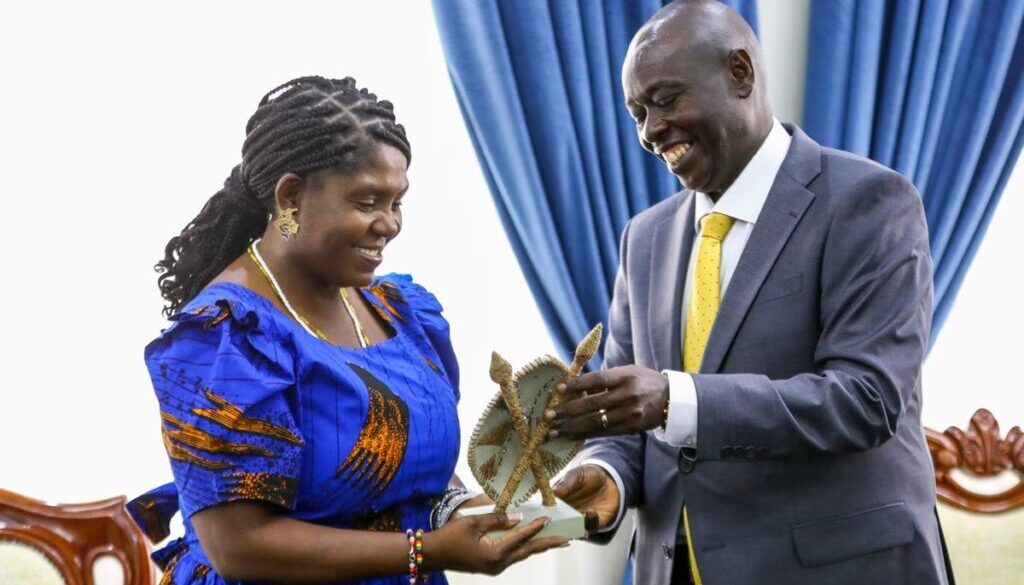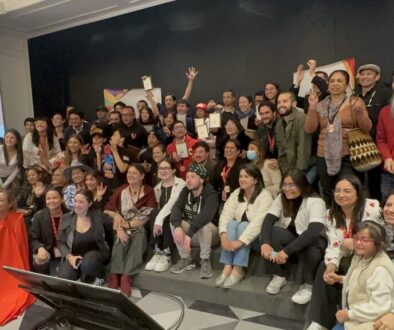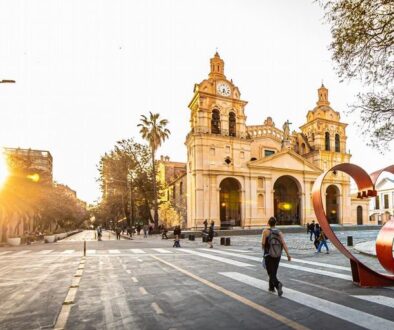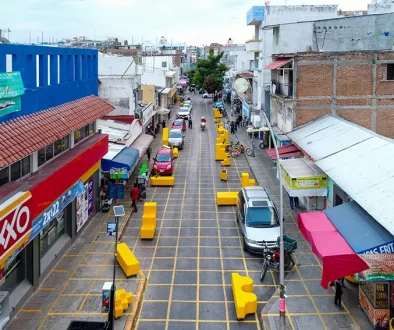Francia Márquez challenges African leadership to rethink it
Getting your Trinity Audio player ready... |
The Colombian vice-president draws on many concepts of Pan-Africanism, but questions African governments. Many of them are authoritarian, male-dominated and ageing.
When Francia Marquez set foot in Gabon on her first tour as vice-president, she was received with military honours and great rejoicing, as the first Afro-descendant woman vice-president of Colombia to visit the country. While the relevance of this meeting has been criticised in Colombia and Latin America, the delegations from Gabon, South Africa and Kenya have welcomed with open arms the proposals for a bilateral environmental and trade agenda with a gender focus and guarantees for citizen mobility between these countries and the Latin American continent. The trip of the Colombian environmental activist and one of the main referents of the Afro movement is also fundamental for rethinking the democratic leaderships of our times.
The vice-president’s visit is not only a diplomatic priority for the current government, but also a meeting that could mark a turning point in the recurrent problem of the absence of new leadership in today’s democracies around the world. As has been seen in less than a year of government, Francia Márquez embodies a new face in Colombian and Latin American politics.
In the current context of the region, where there seem to be no new transformative figures in politics – to the point of having to go back to choosing old recipes like the current Brazilian president Lula Da Silva – Márquez embodies a new voice in the Latin American progressive scene. A woman, Afro-Colombian, close to community-based organisations, Márquez represents a sector of the country that has historically not been allowed to participate in public decision-making in Colombia. Her presence constitutes a new chip on the regional progressive chessboard.
Much can be said about her performance in just over nine months as vice-president, but it is clear that Márquez is particularly characterised by her vindication of her roots and her past. Hence, the general purpose of her visit to African countries is not only to renew Colombia’s diplomatic relations with territories that share much of our history. This meeting aims to connect his roots with a past of emancipation, community leadership and pan-Africanism.
The search for what the Ghanaian philosopher Kwame Nkrumah called the “sense of oneness in Africanness” is perhaps one of the main reasons for the reception in East and Southern African countries. The origins of what is known as Pan-Africanism were around the 1950s and 1960s, when Ghana achieved its first sub-Saharan independence, under the ideas of autonomy, unity and the struggle against colonial racism. It is based on the pillars of twinning and the defence of Africanness, with the intention of achieving the unity of the continent under a single state entity.
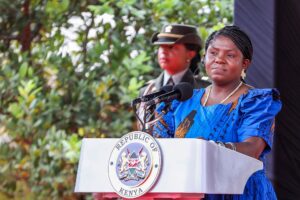
Structural ideas in Márquez’s political commitment such as “Ubuntu” or “I am because we are”, in their most communitarian roots, also originated in Africa. Hence, as a pilgrimage, in a gesture of gratitude, she wanted to rediscover this political foundation and the raison d’être of her social movement. Not because she has lost it, but because she needs to reconnect with the territories that gave birth to her support for the community, her passion for the defence of the rights of nature and her clear commitment to the inclusion of under-represented populations.
Its agenda on ethnic equality and the need to move towards an anti-racist, anti-colonialist and anti-patriarchal peace not only brings a new breath of fresh air to Latin America, but also to Africa. The absence of new leaderships in spaces of power is not only a phenomenon that impacts our region, but is also very present in the African context. The Pan-Africanist dream of more than 60 years ago, of autonomy and liberation, seems to have come to a standstill, at least given the current state of democracies on the continent.
Examples of ageing leaders such as Equatorial Guinea’s 80-year-old President Teodoro Obiang, Cameroon’s 90-year-old President Paul Biya, and Uganda’s 78-year-old President Yoweri Museveni, who further strengthens his authoritarianism by signing the country’s anti-homosexual law into law, are just a sample of the old-fashioned, masculine and, in some cases, authoritarian leadership of African countries. Moreover, there seems to be a pattern of tenure in power, given that, for example, the Ugandan president has been in power for more than 26 years, Equatorial Guinea’s chief executive for more than 43 years, and Cameroon’s for more than four decades. One need only look at other leaders on the African continent to see that the ideas of Pan-Africanism, Ubuntu and community leadership have taken a back seat to the need for greater security and development on the continent.
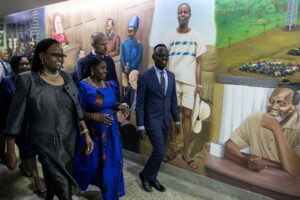
However, despite the fact that these leaders have been monopolising power for years, innovative leaderships in African countries are being consolidated in the neighbourhoods, streets and everyday life. Community and neighbourhood leaders do not pretend to embody messianism in their daily work and strive to represent many realities of many “commons” to the people. They do see the importance of constantly interacting “with their people”, of maintaining a direct dialogue with the needs of the people closest to them.
Young people from marginalised neighbourhoods in East African countries have been organising themselves to form citizens’ assemblies called “barazas”, citizens’ councils and social and political activism, in a quest to decentralise power and raise citizens’ voices. They are leaders who know that democracy requires a less egocentric and more deliberative exercise; a less individualistic and more collective exercise; a scenario that understands the diversity and complexity of different realities and moves from ‘what is said to what is done’.
Francia Márquez questions African democratic leaderships, confronting the past of autonomy, union and liberation with the current state of their democracies. The need to return to these pan-Africanist values, with innovative voices on the rise, allows the African and Latin American continent to exchange future perspectives and demonstrate that it is not that there is a lack of leadership in the world’s democracies, but rather that there has been no space for voices like Márquez’s to reach public power.
Por Sebastián Calderón, Coordinator – Extituto de Política Abierta.
This article was originally published on 16 May 2023 in the newspaper El País.

